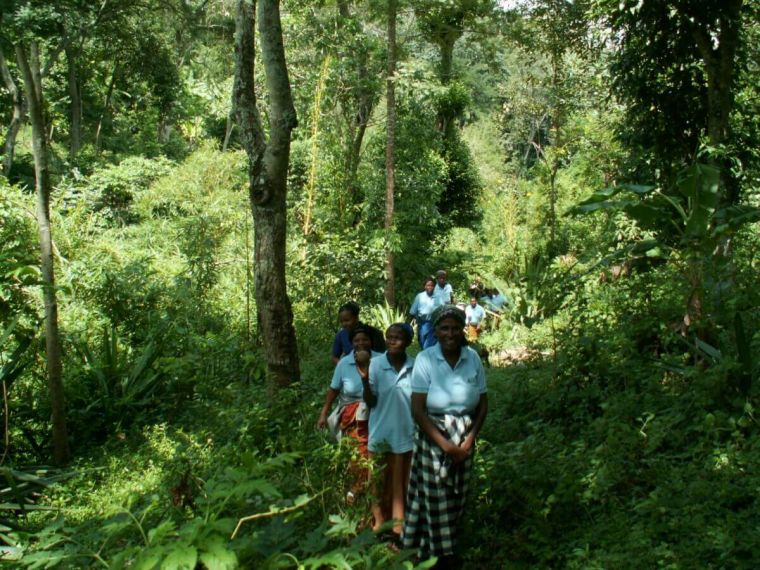How to tackle poverty by planting trees

Trees aren't just for hugging and hippies. Planting trees can have a radical impact on the lives of the poor.
In Tanzania, Christian charity Plant With Purpose uses trees to restore the environment of the rural poor, and so improve people's lives and health. Here's five ways they do that:
1. Produce food
From bananas to avocados, pears to plums, trees produce an abundance of food. This improves people's diets and the produce can be sold for income too.
2. Look after the soil
Soil is the foundation of life. If it deteriorates, then there's no food, and therefore poverty and famine.
Trees depend on the soil too, but they also give back in lots of ways. The leaves from trees provide nutrients and biomass for the ground below. They provide shade from the harsh equatorial sunshine for other crops below. Their roots also help the precious soil to stay put and not be washed away when there is heavy rain.
3. Provide water
Large areas of trees actually increase rainfall in the surrounding areas, and can also improve the local water table. This is a delicate balance, as trees also drink water. But scientists say that one of the best ways of combatting deforestation and its damaging effects on water supply is to plant trees on farmland.
One community in Marangu, in the north of the country, decided to protect an area from grazing, and stop chopping down trees. It's now a lush, rich forest with dark, springy, fertile soil – and it also sprung a new water source.
4. Used for cooking
In rural Africa, cooking is done using a wood-fire stove. Trees are needed for fuel, so they are constantly being chopped down. By planting trees, a community's fuel is secured for the future.
5. Source of income
The charity teaches farmers how to grow tree seedlings, like those shown in the picture below. These seedlings can then be sold to neighbours for their farms, smallholdings and gardens. This means there will be more trees that can bless those neighbours too, and it provides a small income for the farmer.

For people on the breadline, the link between the environment and poverty is much clearer and easier to see. A significant root cause of poverty is the state of the land.
Plant With Purpose teaches rural farmers how to care for their environment and improve their income through a holistic model of community development. Last year they were responsible for planting 2.2 million trees. Find out more at plantwithpurpose.org











